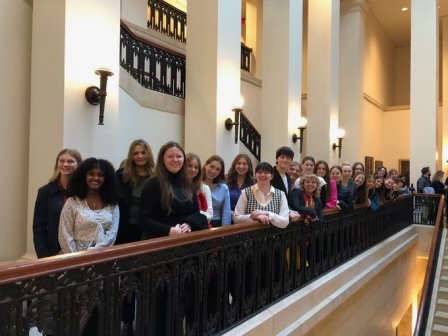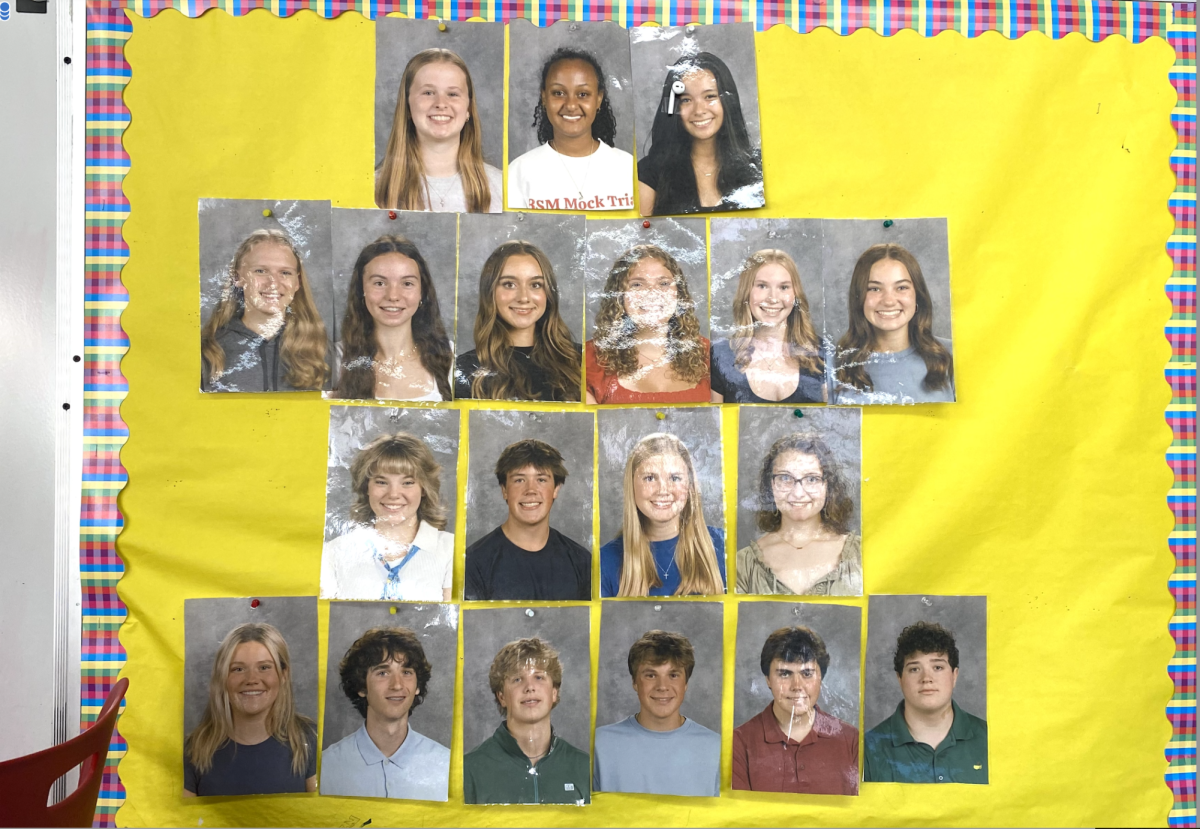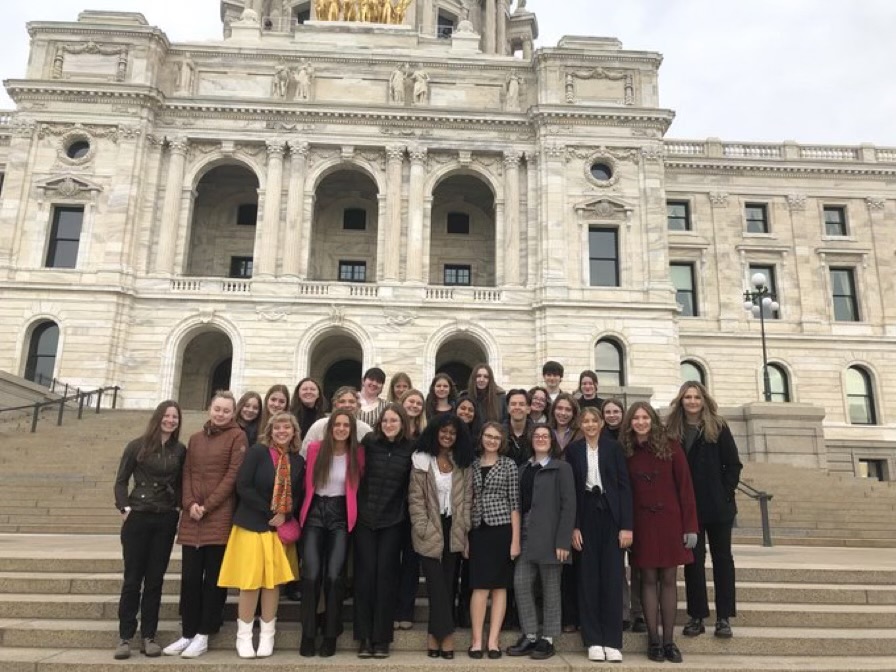Seven seats, one podium, the case of the year. I watched one of the most significant cases in Minnesota and possibly our nation that asks the question: is Trump disqualified from holding office?
Mock Trial creates an opportunity to explore the legal field in practice, poring over a case, crafting an argument, and presenting the facts persuasively. However, the divide between performing in mock trials and actually practicing law is quite steep. To better understand the intricacies of legal proceedings, the Mock Trial team observed a Minnesota Supreme Court hearing and heard from experts in crime scene investigation.
This wasn’t just any Supreme Court case either–this was the Trump case, more formally known as Joan Growe, et. al., v. Steve Simon, Minnesota Secretary of State, et al. If you aren’t aware of the ongoing debate in Minnesota, let me give you a brief summary. Citizens have joined together in an effort to remove former president Donald Trump from the ballot, arguing that he is disqualified from holding office.
This argument comes directly from the January 6th Insurrection where a group of individuals who believed the 2020 election was wrongfully “stolen” from Trump wreaked havoc on the U.S. capitol in an attempt to prevent the ballot counting process that would solidify Joe Biden as president. This was an alarming day in our history, but it is also proving to be significant in the future 2024 election. You see, under Section 3 of the 14th Amendment, “No person shall … hold any office, civil or military, under the United States … who, having previously taken an oath… as an officer of the United States, to support the Constitution of the United States, shall have engaged in insurrection or rebellion against the same, or given aid or comfort to the enemies thereof.”
The petitioners (i.e. the individuals bringing the case before the Supreme Court) argue that this disqualifies Trump from the 2024 election and thereby he should be removed from the election ballots in Minnesota. The respondents, mainly those defending Trump, argued that Trump’s qualification for the election is a political question instead of one for the court to determine. They also made arguments surrounding what qualifies an “office holder” and an “insurrection.” For more information regarding the case, you can read the summary brief.

Observing the entirety of the hearing, it’s safe to say that these attorneys are the best of the best. These are complex legal arguments that require intricate questioning by the justices about precedent, judicial restraint, distinction among terms and definitions, etc. However, the proceedings of the hearing are vastly different from performances in Mock Trial. Nevertheless, witnessing the application of the law and exploring the nuance of legal standards was an energizing and enlightening experience, especially considering the possible implications of this case in our world.
While it’s hard to compete with a Minnesota Supreme Court hearing, I also found the panel of experts in crime scene investigation very interesting. They spoke about their work in latent print analysis, firearm testing, and DNA analysis. Watching true crime shows raises a lot of questions about how these types of testing actually reveal information about suspects. How extensive are fingerprint databases? What is a DNA profile? What distinguishes different firearms? How do these help solve crimes? These are all significant questions in our legal system, and hearing from experts who take part in these respective processes helped piece the puzzle together. While there is no CSI section of a Mock Trial case, the evidence found from these tests is directly involved in our trials. The background information laid a foundation for understanding how the cases we argue come together.
This experiential learning opportunity was absolutely incredible. There is nothing like being there in the courtroom and in the crime lab. It’s a rare and incredible opportunity to observe the processes that we act out every week in Mock Trial.




































![Teacher Lore: Mr. Hillman [Podcast]](https://bsmknighterrant.org/wp-content/uploads/2025/03/teacherlorelogo-1200x685.png)




